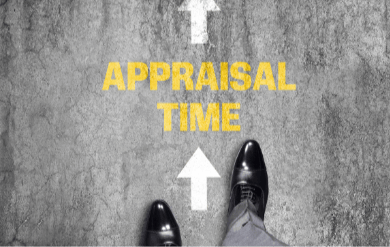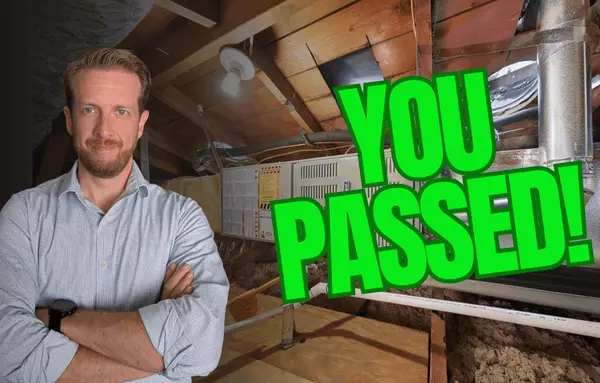Appraisal Seller: What Every Home Seller in Katy, TX Needs to Know

Appraisal Seller: What Every Home Seller in TX Needs to Know
When it comes to selling your home, understanding the appraisal process is crucial. As a seller in Katy, TX, navigating the complexities of appraisals can feel overwhelming, but with the right knowledge, you can confidently manage this important step. In this comprehensive guide, brought to you by Aaron White and the A List Team, we’ll explore everything sellers need to know about appraisals—from what they are and how they differ from a comparable market analysis (CMA) to what happens if an appraisal comes in lower than expected and how to handle buyer contingencies related to appraisals.
Key Takeaways
- Appraisals protect both the buyer and the lender by ensuring the property’s value matches the loan amount.
- A CMA provided by a realtor differs from an appraisal in scope and legal standing, with appraisals being a licensed and rigorous valuation process.
- If an appraisal comes in low, sellers can negotiate, request reconsideration, or prepare for potential buyer walkouts depending on the situation.
Understanding What an Appraisal Is and Why It Matters
First things first: what exactly is an appraisal? Simply put, an appraisal is a professional, licensed evaluation of your home’s market value. Unlike a comparable market analysis (CMA) that a realtor or real estate agent might provide to help you price your home, an appraisal is a formal report ordered by the lender to protect their financial interest. The appraisal ensures that the bank is not loaning more money than the home is worth, which safeguards both the lender and the buyer.
In the home selling process, the appraisal typically comes after the inspection period. Once the buyer and seller agree to move forward with the sale, the lender orders the appraisal. Usually, the appraiser will visit the home within one to two weeks of being ordered to conduct a thorough evaluation.
How Does an Appraisal Differ from a CMA?
Many sellers receive a CMA from their realtor or real estate agent early in the selling process. A CMA is an informal comparative analysis that looks at recent sales in your neighborhood to help you price your home competitively. However, unlike an appraisal, a CMA is not a licensed valuation and does not carry the same weight with lenders.
An appraiser’s job is much more involved. They analyze:
- The value drivers of your home and neighborhood
- Comparable sales in the area
- Replacement costs or cost to build certain features
- Unique features of your home that may add value, such as pools or structural upgrades
For example, while a pool might cost $100,000 to build, it may only add $30,000 to $50,000 in market value depending on your neighborhood. The appraiser uses data and market trends to determine the actual value added by such features, not just the cost incurred by the homeowner.

The Appraisal Process: What Sellers Can Expect
Once the appraisal is ordered, the appraiser conducts a detailed evaluation of your property. This includes measuring the home's square footage, assessing the condition, noting upgrades, and comparing it against recent sales of similar homes nearby. The appraiser must follow strict guidelines and licensing requirements to ensure the valuation is accurate and unbiased.
After the appraisal is complete, the lender reviews the report and determines the maximum loan amount based on the appraised value. If the appraisal comes in at or above the contract price, the transaction typically proceeds smoothly.
What Happens If the Appraisal Comes in Low?
This is a common concern for sellers. If the appraisal is lower than the agreed-upon sale price, the lender will only finance up to the appraised value. This means the buyer has three options:
-
Bring additional cash to cover the difference: The buyer can pay the gap between the appraised value and the contract price out of pocket.
-
Renegotiate the sales price: The buyer and seller can agree to lower the sale price to match the appraisal.
-
Walk away from the deal: If neither option is possible, the buyer may back out without penalty under the third-party financing contingency.
For sellers, a low appraisal can be frustrating, especially if you have already moved out or made plans based on the expected sale. That’s why pricing your home correctly from the start is so important.
Pricing Your Home Strategically
Pricing is an art and a science. At the A List Team, we emphasize the importance of setting a price that attracts buyers quickly while also considering the appraisal risk. Pricing too high can lead to a low appraisal, which may jeopardize the sale. Pricing too low could mean leaving money on the table.
When aiming for top dollar, we take a proactive approach:
- We analyze recent sales and market trends in Katy, TX, including the pros and cons of your neighborhood.
- We prepare a compelling case for the appraiser, including letters explaining unique features or improvements that justify a higher price.
- We coordinate with the buyer’s agent to schedule the appraisal at a convenient time and provide any necessary documentation upfront.
For example, we recently sold a two-year-old home in a small neighborhood with mostly older homes nearby. Because there were no recent sales of similar newer homes, we had to make a strong case for the higher value based on location, structure, and market growth trends. The appraiser agreed, and our client set a new high price for the area.
The Role of the Realtor and Real Estate Agent in the Appraisal Process
Your realtor or real estate agent plays a vital role in guiding you through the appraisal process. They help you understand market conditions, prepare your home for appraisal, and communicate with the appraiser and buyer’s agent. They also assist in negotiating if the appraisal comes in low, helping you explore options to keep the deal on track.
What to Do If You Receive a Low Appraisal
Receiving a low appraisal is not the end of the road. Here’s what sellers in Katy, TX can do:
- Review the Appraisal Report Thoroughly. Request a copy of the appraisal report from the buyer’s agent. Look for any mistakes or omissions, such as incorrect square footage or missing features. Even small errors can impact the appraisal value significantly.
- Request a Reconsideration of Value. If you find discrepancies or have evidence that supports a higher value, you can ask the buyer to request a reconsideration of value from the lender. This involves submitting additional documentation and a letter explaining why the appraisal should be revised.
- Negotiate with the Buyer. Sometimes, the buyer may be willing to renegotiate the price or bring additional cash to close the gap. Your realtor or real estate agent will help facilitate these discussions.
- Prepare for Possible Walkaway. If no agreement can be reached, the buyer may back out under the third-party financing contingency. While disappointing, it’s better to know early so you can relist your home and continue marketing.

Understanding Buyer Financing Contingencies and Timing
In Texas, buyers typically have about 20 to 25 days (often 21 days) from the contract date to secure financing approval. This period includes both buyer qualification and property approval, which largely depends on the appraisal.
During this time, the lender reviews the buyer’s financials and the appraiser’s report. If the appraisal uncovers physical issues—like roof leaks, structural problems, or even minor defects—the lender might deny the loan. Insurability issues, such as an aging roof that insurance companies won’t cover, can also affect loan approval.
If the appraisal value is lower than the contract price, the lender may limit the loan amount, triggering the options we discussed earlier. The buyer has until three days before closing to finalize their decision, which can create stress for sellers if the appraisal comes late in the process.
How the A List Team Helps Sellers in Katy, TX Navigate Appraisals
At the A List Team, we understand the appraisal process inside and out. Our goal is to help sellers in Katy, TX price their homes correctly, prepare for appraisals, and handle any challenges that arise. Here’s how we support you:
- Market Expertise: We analyze local market data and trends to recommend the best pricing strategy.
- Proactive Communication: We coordinate with buyer agents and appraisers to ensure smooth scheduling and information flow.
- Advocacy: We assist in reviewing appraisal reports and negotiating if values come in lower than expected.
- Experience: We have a track record of setting new pricing highs in neighborhoods while managing appraisal risks.
Whether you’re aiming to maximize your sale price or want a quick, guaranteed sale, we provide expert guidance every step of the way. Selling a home can be stressful, but with the right team, you can navigate appraisals confidently and successfully.
Final Thoughts: Pricing Right and Preparing for Appraisals
In the competitive real estate market of Katy, TX, understanding the appraisal process can make all the difference in your home sale. Pricing your home strategically, preparing documentation for appraisers, and knowing your options if the appraisal comes in low are essential steps to a successful transaction.
Remember, appraisals exist to protect buyers and lenders, but with the right realtor or real estate agent by your side, you can ensure that your home’s true value is recognized. The A List Team is here to help you every step of the way, from pricing to closing.
If you’re considering selling your home and want expert guidance on appraisals and pricing, don’t hesitate to reach out to the A List Team. We’re ready to help you navigate the process smoothly and get the best possible outcome.
We look forward to seeing you at the closing table!
Categories
Recent Posts










